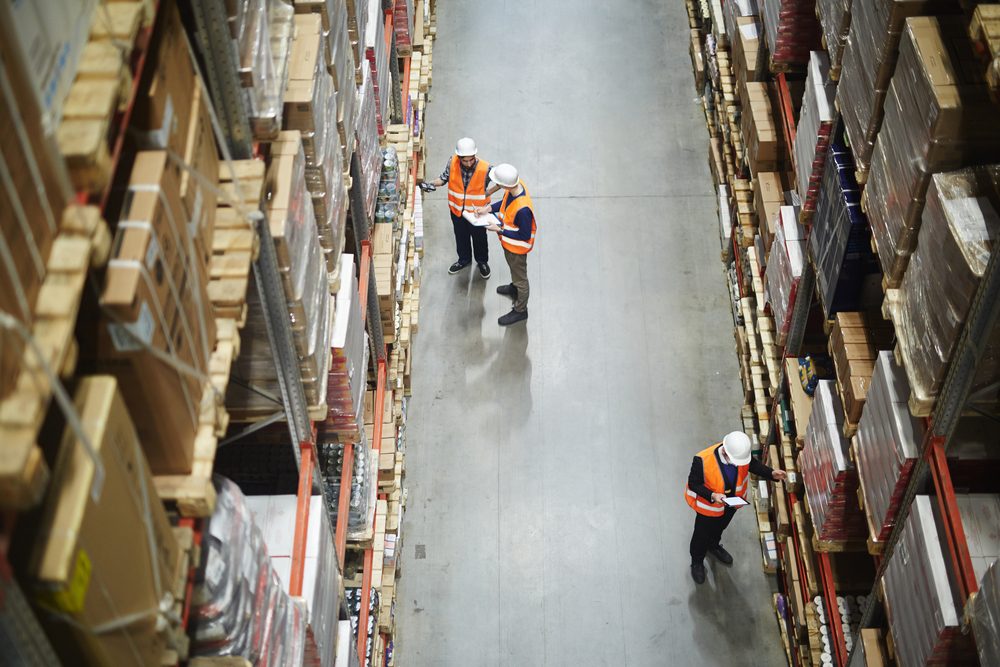A shortage of skilled workers throughout the shipping and logistics industry means that businesses will have to get creative in order to meet their goals.
After lagging economic growth in the wake of the Great Recession, the recent expansion of the e-commerce sector has been a boon for the shipping and logistics industry. Indeed, research predicts that e-commerce sales will near $640 billion by 2022 — an increase of almost $300 billion since 2016.
While this growth is certainly a positive, it does present challenges. From updating fleets to constructing new facilities, the industry will have to adapt if individual businesses hope to compete. However, one challenge is especially urgent: the shortage of skilled workers in warehouses and distribution centers (DCs).
According to a CBRE report titled “The U.S. Supply Chain Quandary: Finding Enough Workers for an expanding I&L Sector,” the shipping and logistics sector will need to bring in 452,000 new warehouse and DC workers this year and next. With previous years seeing slightly over 180,000 new hires on average, this represents a challenge to logistics professionals looking to keep pace with industry giants such as Amazon and Walmart.
Attracting Workers from Other Industries
One key strategy available to supply chain managers is attracting skilled workers from other industries. Matt Walaszek, Senior Research Analyst at CBRE, says, “Data indicates that transportation and warehousing workers are winning on that front, with migration to those areas from other industries, because opportunities for growth are pretty good.”
Where other areas of the economy are performing well, e-commerce represents a particularly dynamic area of growth. Accordingly, businesses hoping to bring on new talent are attempting to lure employees capable of thriving in modern warehouses and DCs. While this strategy alone may not be able to account for the 452,000 new workers needed, it will certainly get the ball rolling.
Investing in Technology and Automation
Additionally, Walaszek points out that new technology, particularly automation, can help bridge the gap between the skilled workers interested in warehouse and DC employment and the actual labor needed to stay competitive. According to him, “It is going to be something industrial occupiers need to look at. The upfront costs are quite expensive at the moment, and as technology develops, it will make its implementation easier.”
The solutions are varied here. Automation can assist with picking, packing, and shipping, while tech such as artificial intelligence and Internet of Things can make existing talent more effective. However businesses choose to integrate cutting-edge platforms into their operation, it’s clear that it’s better to start the process sooner rather than later.
Where Experienced Logistics Providers Fit In
For businesses that are just entering the e-commerce space or that are preparing to expand, managing operations during a talent shortage can be challenging. While larger firms may have the resources on hand to attract workers from other industries or the capital available to invest in automation, these costs can be an obstacle for smaller and mid-sized operations.
By working with a third-party logistics (3PL) partner or an integrated logistics services provider (ISP), however, businesses can rely on an existing talent pool of skilled workers committed to driving value for their supply chain. Indeed, 3PLs and ISPs have the teams on hand and the institutional knowledge that shippers need to stay competitive during a period of e-commerce growth.
With more than two decades of experience in international shipping and logistics, Primary Freight can help shippers of every size, budget, and industry scale confidently and cost-effectively. Whether you need to redesign your supply chain or are looking for targeted support, our award-winning team of highly trained logistics professionals is available around the clock to help. If you’re looking for a business partner that’s as committed to your success as you are, Primary Freight is standing by.
Want to learn more about how you can grow your business with Primary Freight? Give us a call today at (800) 635-0013.
